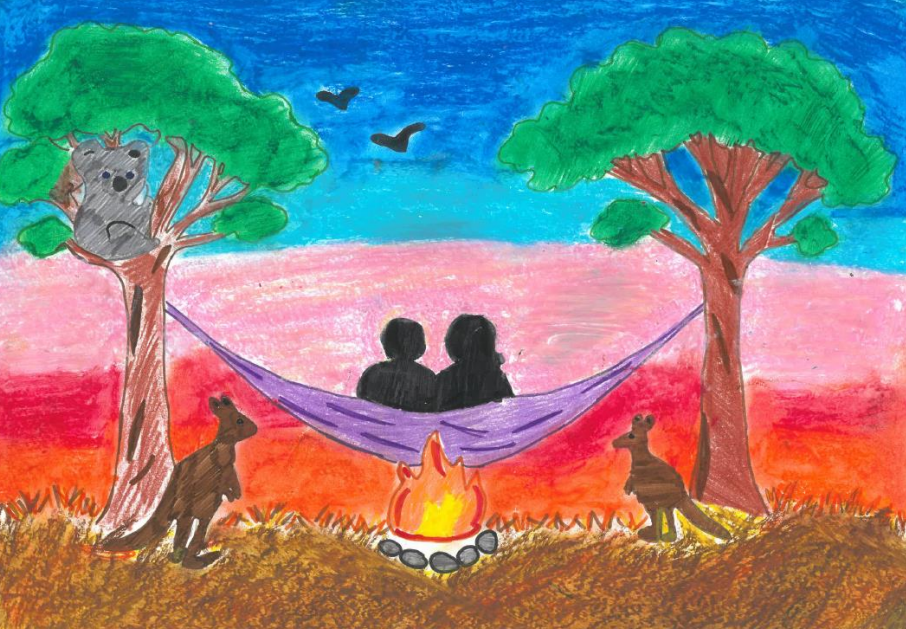Polling commissioned by Caritas Australia to coincide with COP27 finds climate change is the biggest concern for three out of four young Australians, well ahead of conflict and health crises.
Despite the ongoing war in Ukraine and the devastating impacts from the COVID-19 pandemic, only 10 per cent of Australians aged 18-34 cited conflict as their biggest global concern, and only 9 per cent cited health crises.
These results emerge as global carbon emissions are higher than ever, with the Global Carbon Project reporting last week that the planet is due to use up its 1.5 degree Celsius carbon budget within the next nine years.
A key question for the COP27 talks currently underway in Egypt is ‘who should pay the costs of global warming?’. The research also found that nine in ten Australians believe the biggest polluters should pay for the impacts of climate change, with young Australians being slightly more likely to believe this.
Damian Spruce, Caritas Australia’s Advocacy Associate Director, said: “Young Australians clearly believe that big polluting nations need to pay for the loss and damage inflicted on nations which bear the brunt of climate change. These countries, like our neighbours across the Pacific, are the least responsible for climate change but the most heavily impacted. Young Australians in particular stand against this climate injustice.”
For all Australians, rising food costs are a key concern when it comes to the impacts of climate change for the region, followed by increases in extreme weather, bushfires and droughts. Further, nearly six in ten young Australians are concerned with the impact of climate change on future generations in Australia and the Pacific region.
In the Pacific, rising food costs have been a serious problem over the past years. In Samoa, Caritas Samoa is paying double what they used to for basic food items like rice, chicken and cooking oil. This is due to a range of factors, including COVID-19 and the global food shortages due to the war in Ukraine, but there is no denying that climate change is having a serious impact.
“Here in Australia, we are worried about the impacts of climate change on food prices, but the Pacific region is already facing this challenge, and in some communities have been facing food security issues for years already. Many farms and fisheries are no longer as productive as they used to be, and in many cases after disaster events are taking years to rebuild to levels where they can sustain communities. Entire communities are impacted by this, and the problem isn’t going away.”
A new report, “Twin clouds on the horizon”, by Caritas Oceania and Jubilee Australia Research Centre shows that the Pacific region is facing a perfect storm of climate change induced disasters and skyrocketing debt burdens. The report calls for international governments, including the Australian Government, to take the lead on climate debt in the Pacific through restructuring debt, improving climate finance and funding the Pacific Resilience Facility.
“We’ve brought this report to COP27, where we are trying to ensure that the Pacific region remains a focus for global climate change talks,” said Dr Spruce.
Less than half of Australians think the Albanese government is doing enough in terms of climate action, but only three out of ten young Australians think that the Albanese government is doing enough for climate action.
“We have seen some good changes with the Albanese Government, but we need to see more. We cannot build strong relationships in the region when we are not paying attention to the issues that matter most for our neighbours, like climate action. We’re calling on the Australian Government, and indeed the world, to ensure that the communities living on the frontlines of climate change do not need to pay for the excesses of the big polluters,” said Dr Spruce.
Contact: Jessica Stone jessica.stone@caritas.org.au
NOTE: The poll was conducted by Antenna Insights on behalf of Caritas Australia and included 1006 Australians from a national sample weighted for representation against the 2021 census. The survey was conducted between 31st of October to the 2nd of November 2022.

















